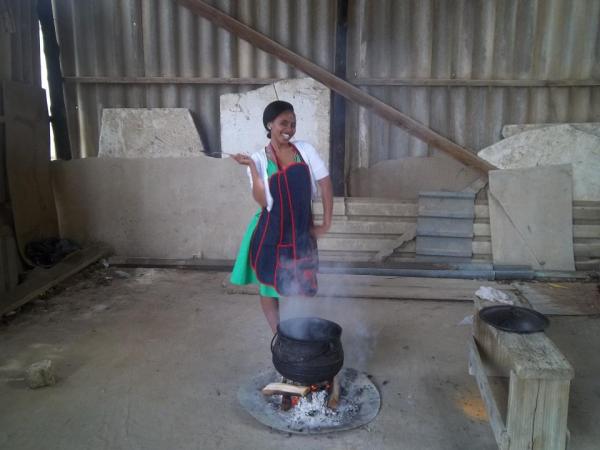Ties that bind

For me heritage goes deeper than the colour of my skin. It starts from the very beginning, my birth.
Where my umbilical cord, inkaba, is buried, is the place I call home; mixed with cow dung and plastered into the house where my ancestors originated. It is the one thing that ties me to my home, my land and my heritage.
My heritage is about looking at my amputated finger, ingqithi, and celebrating a culture, isithethe, that has always been practiced in my family. A culture that robbed me of my ring finger. At eight months the top digit was amputated with a sharp knife.
A culture I never dared to even question. Based on my family’s history and experience, they believed that after the finger was amputated bed-wetting and illness would stop immediately. At only eight months, I can assure you, I had no alarming illness, but I still wet my nappies.
At the age of five, the ritual Imbeleko was performed; a sheep was slaughtered in my honour to officially introduce me to my ancestors and to ask them for their protection. My face, legs and arms were covered with red clay, a white necklace made of beads was placed around my neck, and I was served a plate of white samp and leg of lamb. I was then officially introduced to the amaQwathi clan.
I grew up in a time when Ubuntu meant something; where my grandfather would take strangers into his home for as long as they needed, because he understood the Xhosa idiom: umntu ngumuntu ngabantu (I am because of others).
I grew up in a town where elders were treated with respect regardless of whether they were your parents or not; a place where it truly took an entire village to raise a child.
My mother, from the clan yaseMampodweni, taught me everything I know. She taught me how to make African beer, umqombothi, when my brother was going to the mountain.
I had to wake up early every day when he was on the mountain. I learned how to make a fire outside, and for the first week cooked him iinkobe no mngqusho - a simple samp dish made with only water, then normal food for the following three weeks. When it was time for him to come back home we celebrated his safe return.
He was coming back indoda, a man. The umqombothi was brewing, the women were ululating, dancing bexhentsa and singing besombela (a traditional African style of song and dance). His peers were excited to see him again, and there was such joy in my mother’s eyes as she was now izibazana.
I may not support or understand all the rituals practiced, but the one thing I have learned to appreciate about my culture and traditions is not only the clicks in my language, or the delectable dishes, imingqusho nemiphokoqo, but respect and humbleness. It is a reflection of where I come from and where I am going. It keeps me rooted to my origins and that makes me proud.
Support independent journalism
Donate using Payfast

Don't miss out on the latest news
We respect your privacy, and promise we won't spam you.
Next: Taste of my heritage
Previous: This story is called…

This article is licensed under a Creative Commons Attribution-NoDerivatives 4.0 International License.
